Introduction
Muay Thai is not just about powerful strikes and fitness; it’s also deeply rooted in tradition, respect, and honor. The martial art teaches more than just physical techniques—it instills values that help shape character and build discipline. Respect for trainers, fellow students, and the art itself is integral to Muay Thai training, creating a positive and enriching environment. In this blog, we’ll explore the role of respect and tradition in Muay Thai training and why these elements are so important for personal growth and success.
1. Respect for the Instructor and Training Partners
Respect is one of the first lessons taught in Muay Thai. A respectful attitude toward your instructor and training partners helps foster a healthy, supportive learning environment.
Key Points:
- Honoring the Instructor: In Muay Thai, teachers are viewed as mentors and guides. Addressing instructors with respect sets the tone for effective learning.
- Mutual Respect in Sparring: Sparring partners are seen as collaborators, not opponents, helping each other improve while maintaining safety and camaraderie.
- Respect for the Art: Students are taught to respect the traditions and history of Muay Thai, which honors the lineage of masters and the cultural roots of the sport.
2. Traditional Rituals: Wai Kru and
Ram Muay
Muay Thai is steeped in cultural rituals that emphasize respect and spiritual connection. The Wai Kru and
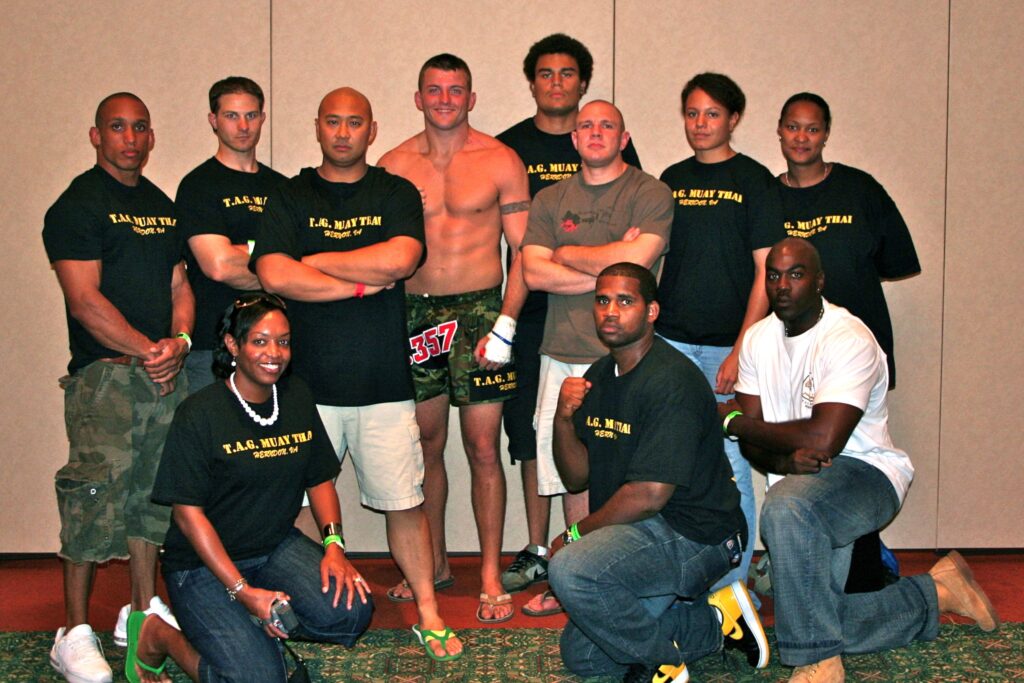
Ram Muay are traditional ceremonies that fighters perform before each match to show gratitude and respect.
Key Points:
- Wai Kru: A ritual performed to honor the teacher and the sport, showing respect for the knowledge passed down through generations.
- Ram Muay: A ceremonial dance performed before a fight, demonstrating respect for the opponent, the audience, and the sport itself.
- Spiritual Connection: These rituals create a sense of mindfulness and focus, allowing fighters to connect mentally and spiritually with their training.
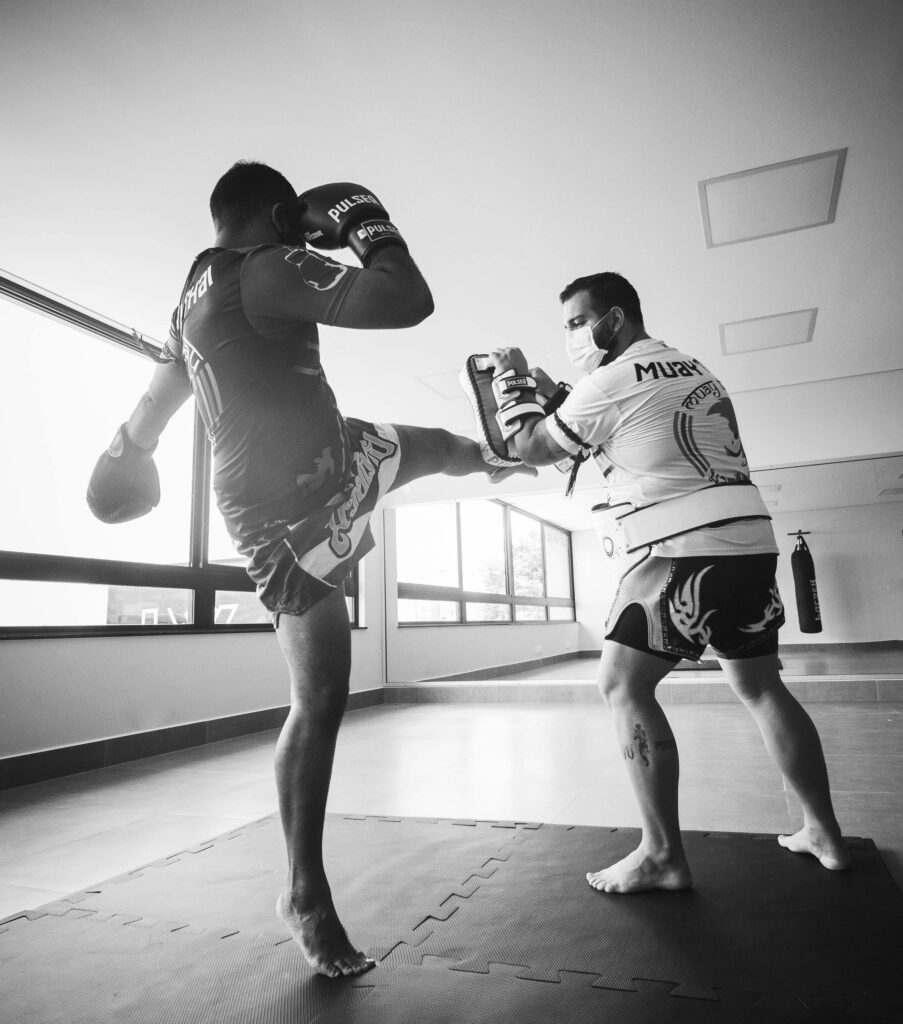
3. Building Discipline and Mental Toughness
Respect in Muay Thai is closely linked with discipline. Training in Muay Thai requires focus, consistency, and the ability to push through challenges, all of which are underpinned by respect for the process.
Key Points:
- Consistency: Respecting the training process means showing up regularly and dedicating yourself to improving, even when progress feels slow.
- Mental Toughness: The discipline required in Muay Thai builds resilience, teaching fighters to handle adversity both in the gym and in life.
- Self-Respect: As you grow in your Muay Thai practice, you develop respect for your own abilities, leading to greater self-confidence and personal development.
4. Respect for the History and
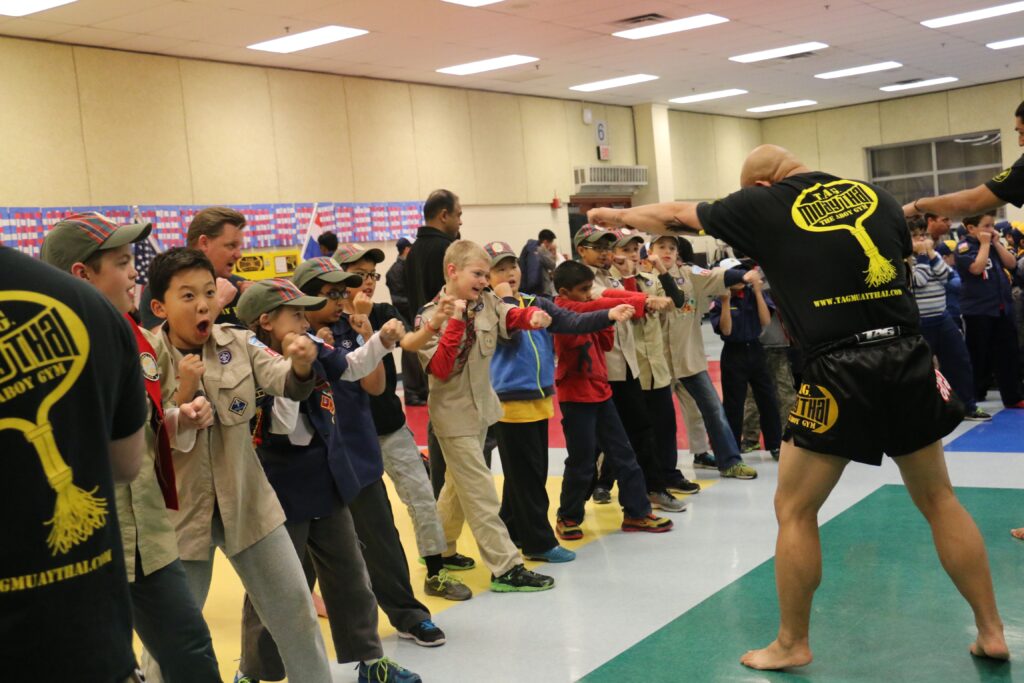
Culture of Muay Thai
Muay Thai is not just a sport; it’s a living tradition. Respecting its cultural origins helps keep the spirit of the art alive and ensures that its values are passed down to future generations.
Key Points:
- Cultural Awareness: Students are taught the historical context of Muay Thai, understanding its origins in Thailand and its evolution into a global sport.
- Honoring Tradition: The respect for Muay Thai’s roots allows practitioners to better appreciate its depth and the wisdom behind its techniques.
- Continuing the Legacy: By embracing tradition, Muay Thai fighters honor those who came before them and contribute to the continued growth of the art.
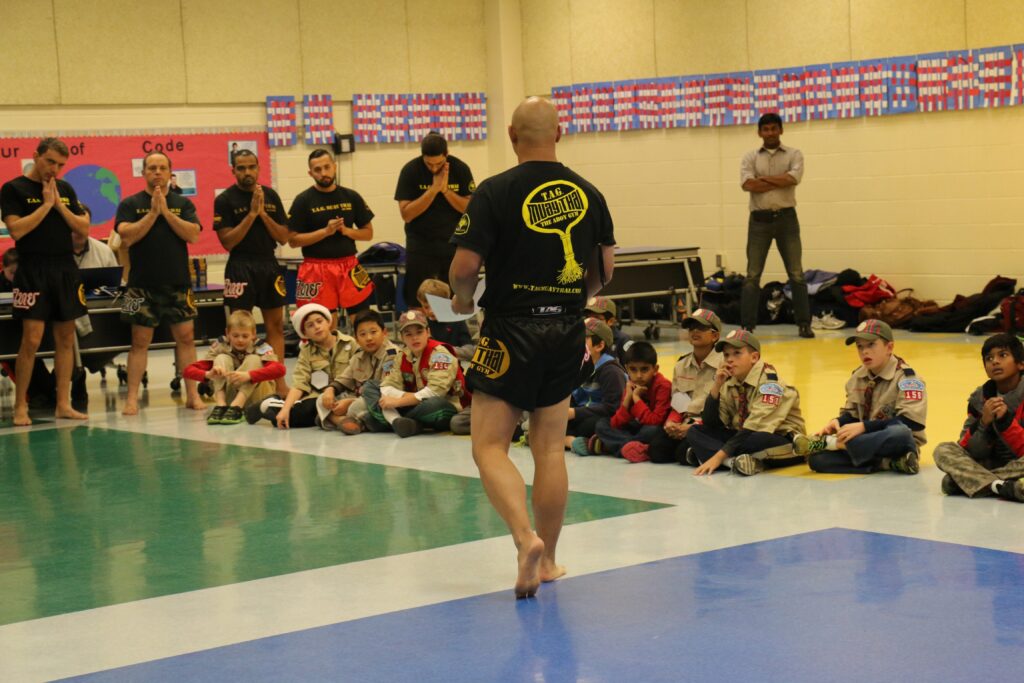
5. Respect and Character Building
Muay Thai isn’t just about physical strength—it’s about building character. Respect for others, the gym, and the training process contributes to personal growth.
Key Points:
- Integrity: Respecting the sport and others promotes integrity both in and out of the gym, leading to better decision-making in life.
- Humility: Muay Thai teaches humility, reminding fighters that there is always room for improvement.
- Community: The respectful and supportive community of Muay Thai gyms helps create bonds of friendship and trust, strengthening the network of fighters and students.
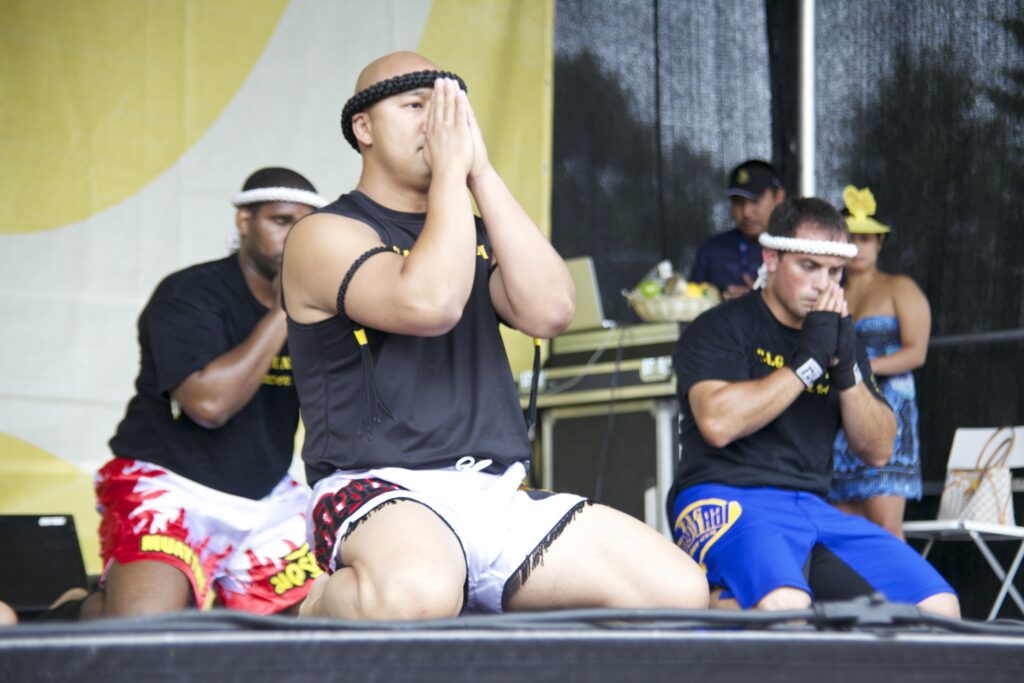
Conclusion
Respect and tradition are the cornerstones of Muay Thai training. From the moment you step into the gym, you’re not just learning how to strike—you’re learning life skills that contribute to your growth as a person. Through respect for instructors, training partners, and the art itself, Muay Thai builds discipline, mental toughness, and character. Whether you’re training for fitness, self-defense, or competition, these values will guide you toward success, inside and outside the gym.







